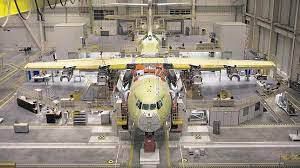The Federation of Metal Companies, Fedeme, has recently sent to the Ministry of Economic Affairs and Digital Transformation, through the CEOE, a complete report in which it requests and justifies the necessary incorporation of the aerospace, automotive and petrol station sectors in the direct aid plan for companies and the self-employed regulated by Royal Decree Law 5/2021, of March 12, on extraordinary measures to support business solvency in response to the COVID-19 pandemic.
In this report, the federation expresses the reasons that justify the incorporation of said sectors in the list of economic activities that could be entitled to benefit from the package of measures designed by the Government, for which it trusts that the Executive is willing to make modifications and adjustments in the text before the incomprehensible decision to leave them out.
“The lack of aid in such badly-affected sectors could have disastrous consequences and lead to irreparable losses in the business fabric and irremediable workforce adjustments due to the impossibility of sustaining themselves in the current circumstances, hence the importance of expanding the spectrum of potential aid beneficiaries”, Emphasizes the president of Fedeme, Francisco Javier Moreno Muruve.
Aerospace
In this case, Fedeme requests to include all the CNAES related to the aerospace sector and its related activities as it is one of the activities particularly affected by the pandemic as a result of the stoppage of tourism.
Thus, taking into account the results of the three studies on the metal sector carried out by the federation since the beginning of the crisis, in which specific work has been carried out on the aerospace sector, the fall in the workload of this sector. sector in 2020 has been higher than 40%.
Likewise, Fedeme points out in its report that the aerospace sector has not been able to benefit from the reduction in labor costs through the Temporary Employment Regulation Files due to force majeure, at the same time that it affects the limitations of air traffic, whose fall in 2020 It is estimated that it was 65.9% compared to 2019, according to IATA.











